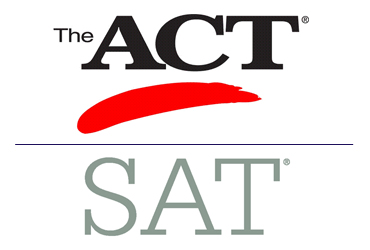Amina Dalton, Emma Lane
UMKC announced last week that it will no longer require applying students to submit ACT/SAT scores.
“We are proud to be the first university in the UM System to adopt this approach, as we join a growing number of U.S. colleges and universities—more than 1,000 so far—who have established similar practices,” said UMKC Chancellor Mauli Agrawal.
Under the new test-optional admissions process, many applicants that performed well in high school will no longer have to submit ACT/SAT scores to be considered for admission. The change was made with the intention of including more students who may experience difficulties with the long-standing college-entrance tests.
“It is in the best interest of the people who live in our community, the workforce needs of our employers and the overall economic development of Greater Kansas City and the state of Missouri,” said Agrawal.
According to the Office of Admissions, students with a cumulative GPA of 2.75 or higher have the option of applying with or without submitting their test scores, with the exception of some academic units which will still require them to be submitted. This includes architectural studies, the Conservatory, the School of Computing and Engineering, the School of Dentistry, the School of Medicine, the School of Nursing and Health Studies, the School of Pharmacy, the Honors College, students interested in automatic scholarships, students who are homeschooled, student-athletes and KC Scholars. This list includes several popular programs at UMKC.
“I believe it would be quite significant for UMKC to lead this effort,” said Donna M. Davis, a professor in the School of Education. “We would, I hope, be seen as more inclusive and open to accepting non-traditional ways of assessing a student’s ability to be successful.”
“We never know how many students we lose simply because they are afraid to take a specific standardized test,” said Davis. “We would also be opening our doors to students who are quite capable, but who may not be able to demonstrate that on a standardized test.”
News of the test-optional admission policy has been greeted with positive responses from UMKC students.
“I think it’s a great idea. Students should feel they can go to a good school and not worry about these tests defining their academic futures,” said Kennedy Bright, a UMKC student-athlete that has faced difficulties with standardized testing.
Shortly after finishing high school, Bright found out she was dyslexic and had a math and reading disability, which made testing quite difficult. Though her grades in school were at a good level, her test scores didn’t reflect this reality. As a result, she struggled to find a desirable university that would accept her.
“It was terrible. I didn’t know any other way but to struggle,” Bright said.
Before implementing this new policy, UMKC based admission off of high school GPA, class ranking and course standardized test scores, a common course of action for many public universities.
Doniesha Simmons, a student working at the admissions office, recently spoke to an applicant’s father, who was concerned about how testing issues would affect his daughter’s chances of acceptance.
“He said she got a pretty low score on her ACT,” Simmons said. “I said, ‘Well actually we’re going test-optional, so she shouldn’t have an issue.’”
Going test-optional could prove to be beneficial to the UMKC community and to students who feel test scores should not define them.
With an acceptance rate of 56%, UMKC could see increased enrollment numbers with the relaxed admission policy. This would work with Agrawal’s 10-year strategic plan, which calls for a 50% increase in enrollment over the next decade.
ajd6r9@mail.umkc.edu
erlwny@mail.umkc.edu








